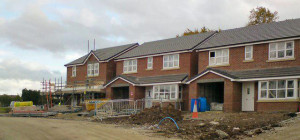 It can be an exciting, but also intimidating, experience to move to a new place. There are many uncertainties attached to moving, especially if it's to a place you have limited knowledge of or have never been to before. Are you relocating for work and are pressed for time to find a new living arrangement? Are you feeling free and planning to move to a completely new place? I cannot express enough the importance of knowing the neighborhood and community that you are moving to. You want to be sure you will be making the absolute best choice for you and don't end up unhappy, or worse, insecure about living in your new home or apartment. Do yourself and favor and do some research so you don't end up stuck in a place you hate. Read on for some tips for doing such research.
It can be an exciting, but also intimidating, experience to move to a new place. There are many uncertainties attached to moving, especially if it's to a place you have limited knowledge of or have never been to before. Are you relocating for work and are pressed for time to find a new living arrangement? Are you feeling free and planning to move to a completely new place? I cannot express enough the importance of knowing the neighborhood and community that you are moving to. You want to be sure you will be making the absolute best choice for you and don't end up unhappy, or worse, insecure about living in your new home or apartment. Do yourself and favor and do some research so you don't end up stuck in a place you hate. Read on for some tips for doing such research.
READ NEWS & MAKE USE OF SOCIAL MEDIA. Why not live like a local and read news sites that feature events and politics that are happening in your prospective location? You could even like Facebook pages and follow Twitter accounts of businesses and news sites in the area. You can even visit sites such as CraigsList where you can gather heaps of information regarding happenings in the community and community events. You can even find some information on places to buy new furniture, get involved in the community and discuss hot topics with local residents. This will help you get a feel for what's going on in the area, what the culture of the people in the city is and if it feels like a place where you would be interested in living.
FIGURE OUT THE WALK SCORE. It is also important to know just what the particular area or community has to offer. Does the city make it simple for its residents to gain access to public transit? What is there to do nearby? If you're an active, outdoorsy individual, you may be wondering if there is access to local bike trails. If you are relocating, it is good to know the amount traffic you'll be contesting with. If you have kids, look into schools in the community and see what special programs they offer as well as what the curriculum is like. If you enjoy going out and trying new things, look up local restaurants, landmarks and entertainment venues. Another important thing to check is the location of your potential home in relation to local convenience and grocery stores. If you are moving to a fairly large suburban area or a big city like Minneapolis, for example, this will most likely not pose an issue. However, if it's a smaller town in your sights, this may be something to take into consideration. Nobody wants to drive an hour to go pick up milk and bread.
AREA DEMOGRAPHICS. Before moving, you also may want to know: are there others like you in that particular area? Will you be the only 20-something in a predominantly senior community? It's definitely something to consider. In addition to age demographics, it may also be beneficial to research income, gender ratios, family concentrations , population and crime rates. Having knowledge of these things can give you a good idea as to what living in this city or community would be like and whether or not you'd "fit in" with the locals.
MEET FRIENDS BEFORE MOVING. Nothing can ruin a new city more than having nobody to hang out with. Nobody wants to feel lonely…especially in an unfamiliar place. I would suggest finding cool volunteer opportunities that interest you (try Volunteermatch.org), joining a gym or find a interesting class to take. Find local sites with discussion forums where you can interact with people in the area, get valuable advice and maybe even gain a new buddy to meet up with for coffee when you arrive. If you want to go a step further, join a site like Meetup.com, where you get connected to people in your area with similar interests, get together for happy hours or events and have the ability to build friendships or network.
IS IT AFFORDABLE? The final tidbit of information to consider is the cost of living. After all, it's important to know if you can actually afford to live there. Well ahead of time, research gas prices, utility costs, taxes, insurance costs, and any possible parking costs. Additionally, many experts advise that approximately 30 % of your total income should go to rent. You can use this bit of information to decide if your new house or apartment is too pricey or just right.
Bailey Martin blogs for LeraBlog and Apartment Living Guide.







